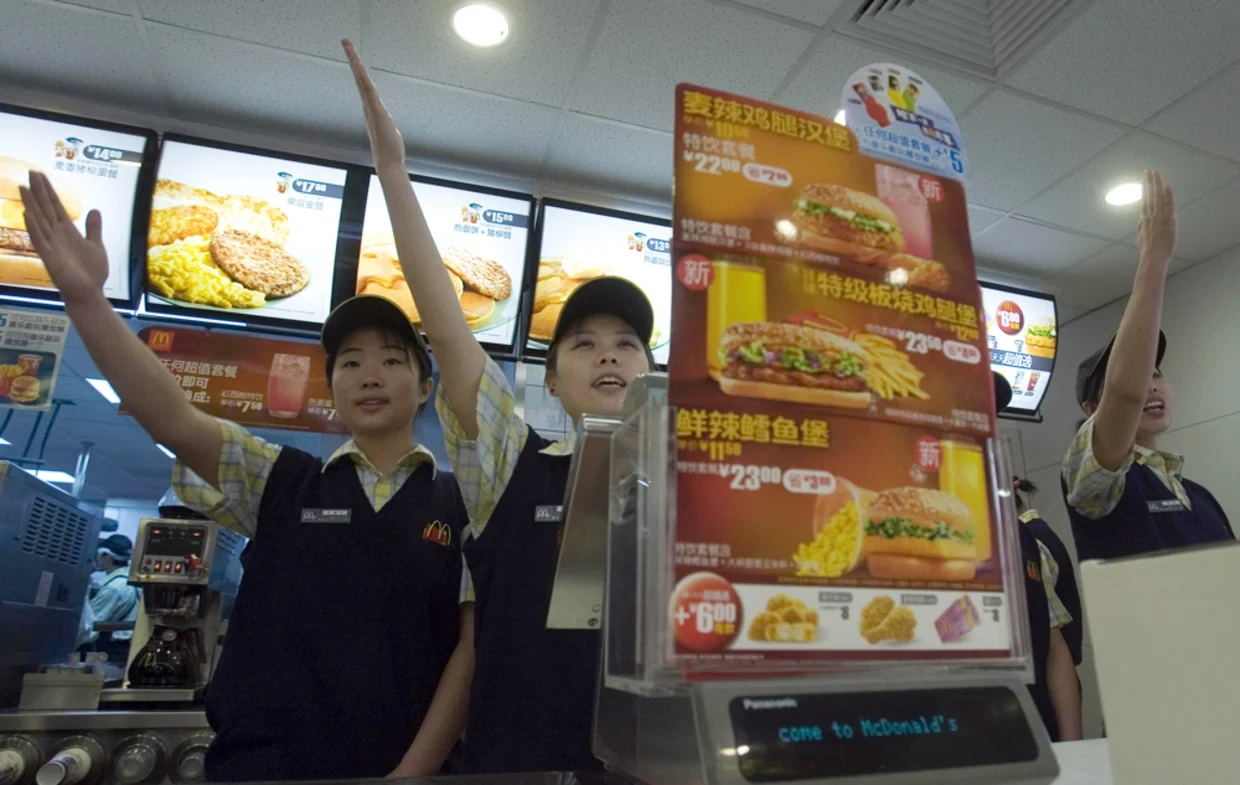Young Chinese trade office desks for blue-collar jobs
 Workers greet walk-in customers at the opening of the McDonald's in Beijing on 2018 (AP Photo)
Workers greet walk-in customers at the opening of the McDonald's in Beijing on 2018 (AP Photo)
A growing trend among young white-collar workers in China reveals a shift toward blue-collar jobs. Tired of the country’s grueling “9-9-6” work culture (9 a.m. to 9 p.m., six days a week), many are leaving their office jobs for physically demanding roles such as house cleaning and pet care. These workers report feeling happier and healthier in their new professions.
Personal stories of transition
Business students choose McDonald’s
Jin Jin, who studied business administration at Beijing Union University, chose to work at McDonald’s for its flexible hours, allowing her to balance work with personal time. Jin added that she enjoys the diverse and youthful atmosphere at her job.
I make money and I have time to do things I like. I don’t care what other people think
Jin Jin
From executive assistant to house cleaner
Leon Li, a 27-year-old from Wuhan, left his executive assistant job to become a house cleaner. Speaking to CNN, Li shared the positive impacts of his career change: “I don’t feel dizzy anymore, I feel less pressured, and I’m full of energy every day.”
From e-commerce to pet care
Alice Wang, a 30-year-old who used to earn over $95,000 annually, resigned from her e-commerce job in April to take up pet care. Wang noted that she felt “very lifeless and sluggish” in her previous role, but now feels much better.
Working in beauty industry with accounting degree
Amy Li, 25, works at a hair salon in Beijing. After struggling to find an accounting job post-pandemic, she shifted to the beauty industry.
“The atmosphere in the shop is very good, and my colleagues have been very helpful,” Li shared. Despite initial concerns about abandoning her degree, she now feels more confident and happier in her new role.
Econ graduates join delivery company
Yang Fan, who graduated with a degree in economic management, joined a delivery company when he couldn’t find an office job.
“The pay is pretty good, I have social insurance and a housing allowance, and this is a relatively secure job,” Yang said. He also highlighted the camaraderie among his colleagues and the pride he takes in his work.
Competitive job market
The rising competitiveness in the job market for new graduates is also influencing this trend. Many young professionals, unable to find suitable office jobs, are opting for blue-collar positions.
Increasing demand for blue-collar workers
A report by the online recruitment platform Zhaopin highlighted a 165% increase in applications for blue-collar jobs from individuals under 25 during the first quarter of 2024 compared to the same period in 2019. This surge is partly driven by the dramatic growth of e-commerce, which has significantly increased the demand for logistics and delivery workers.
Surge in manufacturing and blue-collar wages
Manufacturing has rebounded, driving factory owners to extraordinary lengths to recruit workers. A viral video showed factory owners in Guangzhou lining up to attract potential employees with placards advertising job openings and salaries. Blue-collar wages have risen by nearly 36% since 2019, making these jobs more attractive than ever.
Future outlook
As youth unemployment in China remains high at almost 15%, more young professionals are seeking stability in blue-collar jobs. The economic landscape continues to evolve, with Beijing promoting high-tech sectors like green energy and electric vehicles. However, weak consumer confidence and declining foreign investment pose ongoing challenges.



